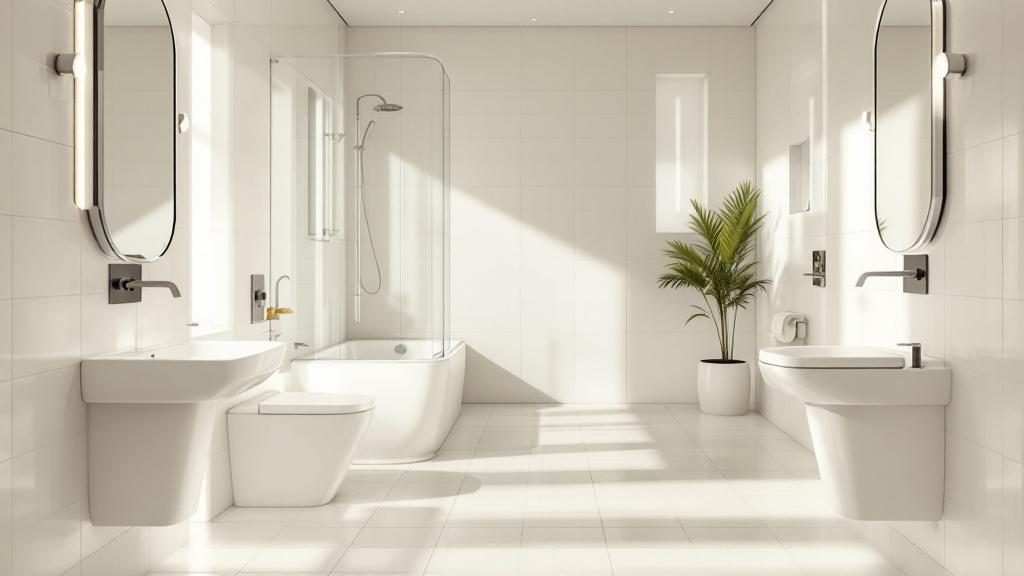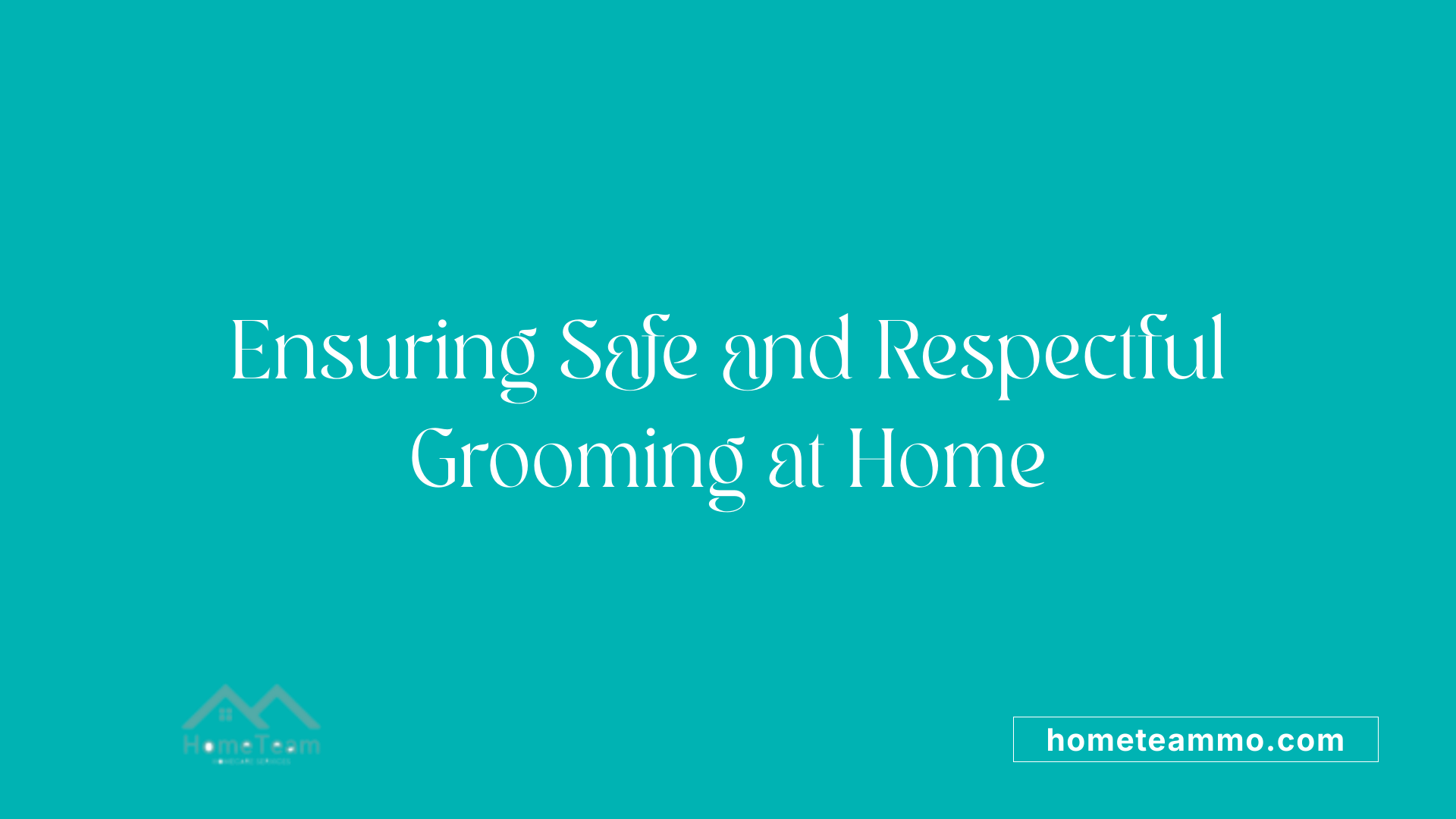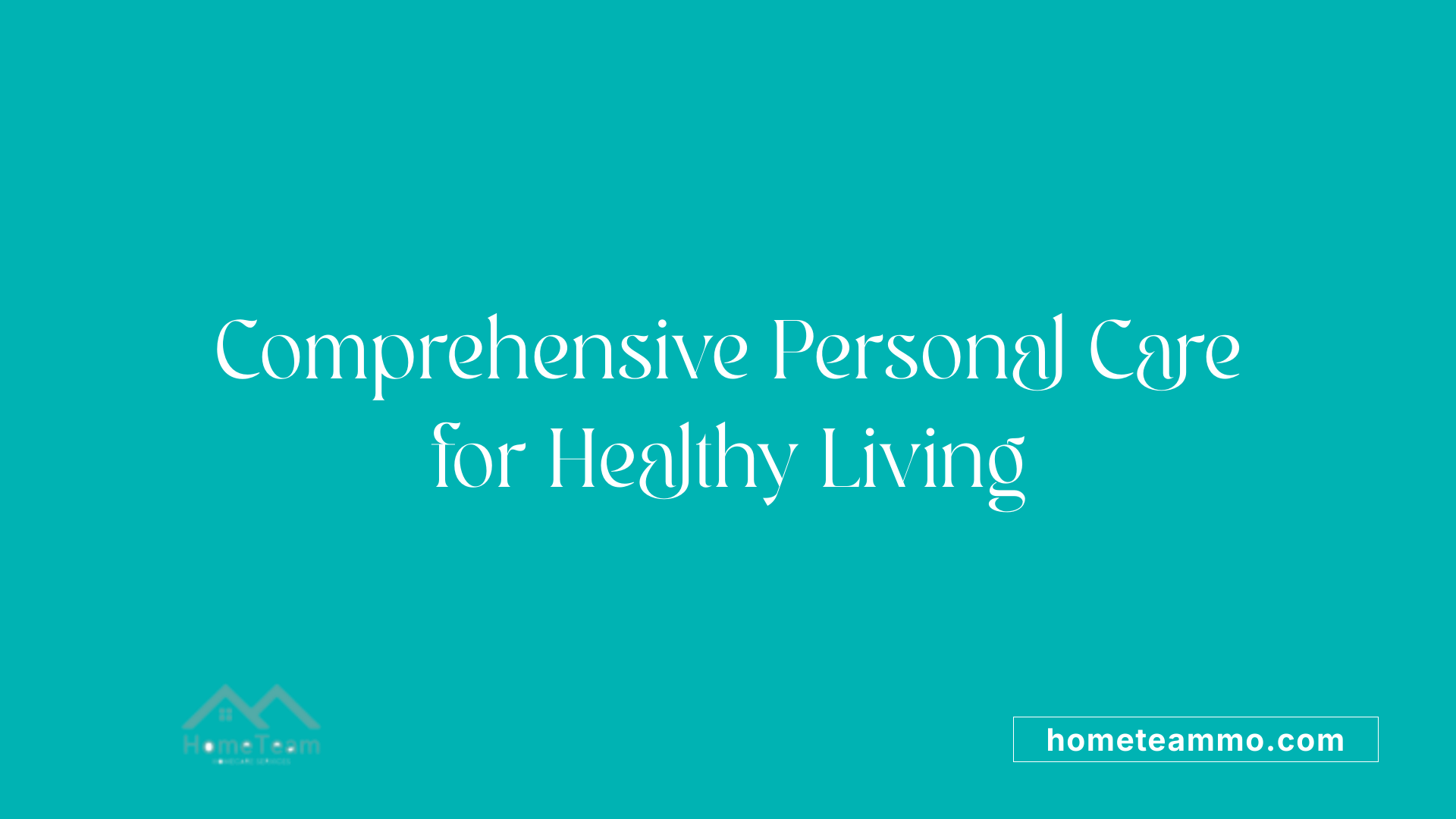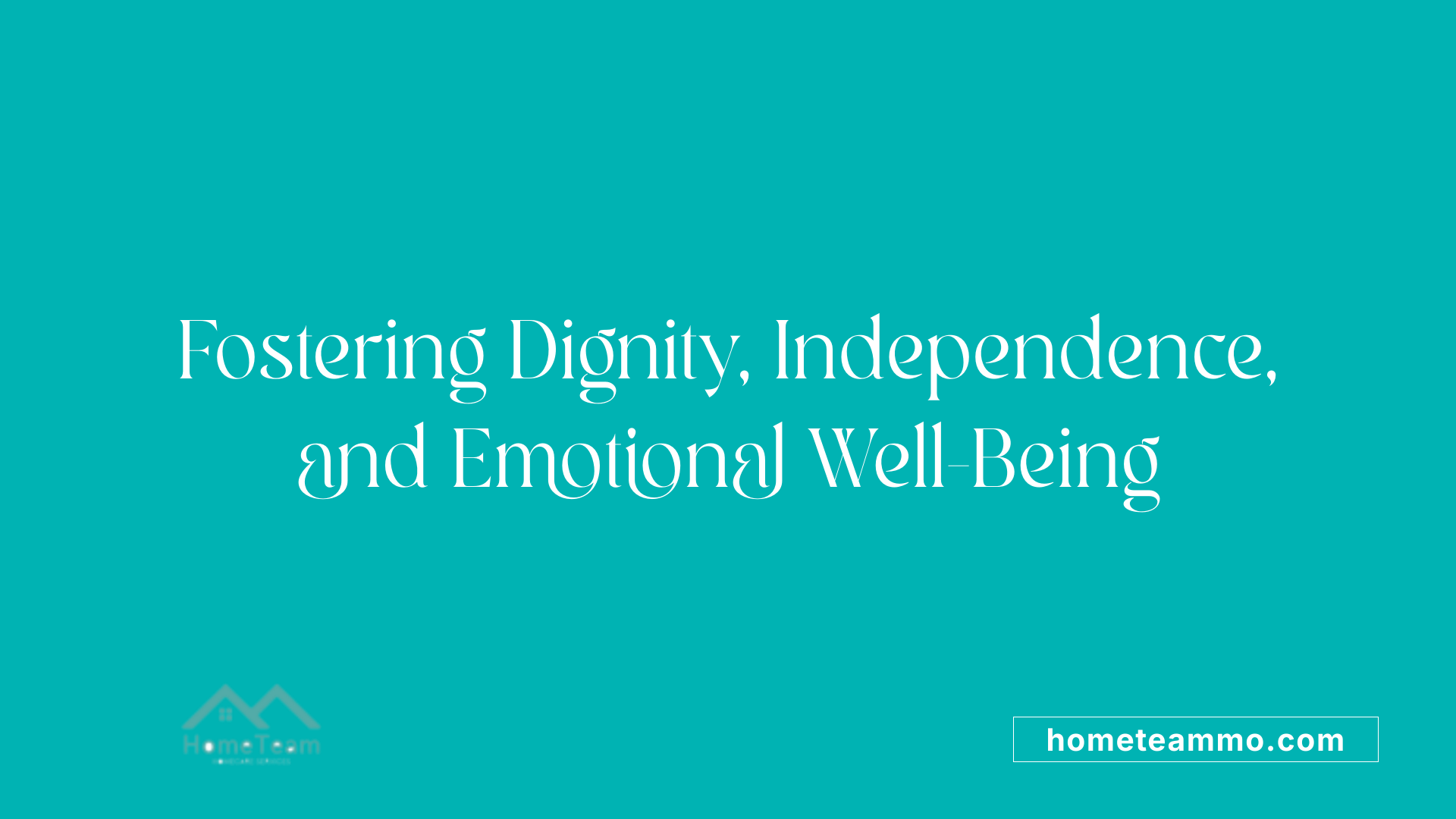How In-Home Care Services Help with Bathing and Grooming
Ensuring Safety and Dignity in Personal Hygiene at Home

The Vital Role of In-Home Care in Personal Hygiene
Maintaining personal hygiene is essential for health, dignity, and emotional well-being, especially for seniors and disabled individuals. In-home care services provide vital assistance to help these individuals with bathing, grooming, and related activities, enabling them to stay safe, independent, and comfortable within the familiarity of their homes.
Personalized Assistance with Bathing and Grooming
How do in-home care services assist with bathing and grooming tasks?
In-home care services provide vital support to individuals who need help with personal hygiene routines, such as bathing, showering, and grooming. Caregivers tailor their assistance based on each person's specific needs and mobility capabilities. They help clients with activities like washing hair, shaving, skin care, nail care, and oral hygiene, ensuring the individual feels clean, confident, and comfortable.
Safety is a primary focus during these tasks. Caregivers employ safety tools such as grab bars, transfer benches, non-slip mats, and proper transfer techniques to minimize fall risks. They also pay close attention to water temperature and comfort to prevent injuries. Respect for privacy and dignity is fundamental; caregivers communicate gently, use respectful language, and adapt routines to preserve the individual’s modesty.
These services not only improve hygiene but also support emotional well-being by fostering independence and confidence. Regular assistance with personal care routines helps detect potential health issues early, such as skin problems or signs of illness. Ultimately, in-home bathing and grooming services are essential for maintaining health, safety, and dignity in the comfort of one’s home.
What are some common tools and techniques used?
- Grab bars and handrails for safety
- Transfer benches and chairs for ease of movement
- Gentle verbal cues and reassurance
- Maintaining water temperature for comfort
- Personalized routines respecting the client’s preferences
Who provides these services?
Licensed and trained caregivers, Home Health Aides (HHAs), and personal care aides typically perform these tasks. They undergo training that emphasizes safety, privacy, and respectful care. They are skilled in handling clients with various mobility and health challenges, making sure that personal hygiene routines are as comfortable as possible.
Why is appropriate bathing assistance important?
Proper hygiene practices help prevent skin infections, body odors, and other health issues. Regular bathing can also improve mood and self-esteem, especially for those who may feel isolated or dependent.
This comprehensive, respectful approach ensures that individuals maintain dignity and independence while receiving essential personal care in their own homes.
Safety, Comfort, and Independence in Grooming Routines
 When assisting with bathing and grooming at home, safety measures are essential to prevent falls, injuries, and other hazards. Installing grab bars near the shower or bathtub and non-slip mats on the floor provides stability and reduces the chance of slipping. Adequate lighting is crucial to ensure visibility, especially in areas like the bathroom that can be dark or have shadows.
When assisting with bathing and grooming at home, safety measures are essential to prevent falls, injuries, and other hazards. Installing grab bars near the shower or bathtub and non-slip mats on the floor provides stability and reduces the chance of slipping. Adequate lighting is crucial to ensure visibility, especially in areas like the bathroom that can be dark or have shadows.
Using assistive devices further supports independence and safety. Transfer benches allow users to sit safely while transferring into the shower, while handheld showerheads enable easier washing without needing to move around excessively. Long-handled sponges or brushes can help reach difficult areas, minimizing strain and discomfort.
Proper water temperature safety precautions are also vital. Setting water heaters below 120°F helps prevent scalding, and installing anti-scald devices provides an extra layer of protection. Caregivers should test water temperature beforehand and communicate clearly with the individual about the process.
Personalized grooming routines respect each person's preferences and needs. Caregivers prepare supplies in advance, encourage participation when possible, and maintain routines that foster comfort and dignity. Supporting routines include activities like skin inspection, hair grooming, oral care, and dressing—each tailored to the individual's health and mobility levels.
Effective assistance involves good body mechanics, gentle handling, and respectful communication. If resistance or behavioral cues are present, caregivers should employ patience and adjust techniques accordingly. Regular professional evaluations can identify appropriate assistive devices and safety modifications, further enhancing independence.
In summary, safe bathing techniques for seniors and disabled persons include environmental safety measures, assistive devices, temperature control, and respectful, personalized care routines—ensuring comfort, safety, and continued independence.
Range of In-Home Personal Care Services

What types of personal care services are provided at home to support bathing and grooming?
In-home personal care services play a vital role in helping seniors maintain their hygiene, safety, and independence. These services include assistance with bathing, which covers support with showering, tub transfers, and maintaining skin health. Caregivers ensure that water temperature is safe, promote comfort, and prevent slips and falls.
Beyond bathing, personal care services extend to grooming activities such as hair washing, styling, shaving, and skincare. These tasks are personalized to meet individual preferences and health needs, often contributing positively to seniors' self-esteem and emotional wellbeing.
Caregivers also help with dressing, oral hygiene, incontinence management, and toileting. These activities are conducted with dignity and respect, fostering a sense of independence and personal dignity.
Supporting routines often includes mobility assistance, safe transfers into and out of the bath or shower, and fall prevention strategies. All these efforts aim to create safe, comfortable, and effective routines for personal hygiene.
Overall, these tailored services help seniors stay clean, healthy, and confident while respecting their privacy. They also facilitate early detection of potential health issues, ensuring prompt medical attention when necessary.
Supporting Mental and Emotional Well-Being Through Personal Care

How do in-home caregivers help seniors and disabled persons maintain hygiene and independence?
In-home caregivers are essential in helping seniors and individuals with disabilities preserve their personal hygiene and independence. They assist with vital daily tasks such as bathing, grooming, dressing, and toileting, always respecting the individual’s dignity and privacy. These professionals do more than just physical support—they foster a sense of normalcy and respect, which enhances emotional health.
Caregivers help with routine activities like showering or shampooing, ensuring water temperature comfort and safety measures, such as grab bars or non-slip mats, are in place. They also guide safe transfers into and out of the bath or shower and assist with skin inspection and light grooming. This meticulous attention helps prevent health issues like skin infections or foot problems, and enables early detection of potential health concerns.
Beyond personal hygiene, caregivers support nutritional needs through meal preparation, remind patients to take medications, and keep living areas clean and safe. Regular assistance with these activities contributes to the individual’s overall wellbeing, creating a foundation for independence.
Companionship during grooming routines
One of the profound benefits of in-home care is companionship during daily routines. Caregivers build trusting relationships, engaging seniors in conversation and providing emotional support as they perform personal care tasks. This companionship reduces feelings of loneliness and fosters a positive attitude towards self-care.
Respect for privacy and personal preferences
Respecting privacy is fundamental to quality care. Caregivers are trained to maintain modesty during bathing, grooming, and dressing, ensuring clients feel safe and respected. They often tailor routines to accommodate personal preferences, cultural practices, and comfort levels, which affirms the individual's sense of autonomy.
Positive impacts on self-esteem and emotional health
Personal care assistance significantly boosts self-esteem and emotional health. When seniors receive respectful, compassionate care, they often experience improved mood and confidence. Consistent, dignity-preserving support helps combat feelings of helplessness, promoting a more positive self-image.
Role of caregivers in maintaining dignity
Caregivers are trained to uphold dignity in all interactions. They approach personal care with patience, kindness, and professionalism. Their goal is to make each individual feel valued and respected, recognizing personal routines, preferences, and emotional needs. This respectful approach empowers seniors to retain their independence and self-respect.
| Aspect | Description | Impact |
|---|---|---|
| Personal Hygiene Assistance | Support with bathing, grooming, and dressing | Preserves health and promotes positive self-image |
| Emotional Support | Compassionate companionship during routines | Reduces loneliness and boosts mood |
| Privacy Respect | Maintaining modesty and cultural preferences | Fosters dignity and autonomy |
| Safety Measures | Use of safety tools and adaptations | Prevents falls and injuries |
| Tailored Care | Personal routines and preferences | Enhances comfort and satisfaction |
By incorporating physical assistance with a compassionate touch, home caregivers help seniors maintain their health, independence, and emotional well-being, enabling them to live dignified lives in familiar surroundings.
Empowering Independence with Compassionate Care
In-home care services are essential for supporting personal hygiene, grooming, and overall well-being for seniors and disabled individuals. These services not only help maintain health and prevent complications but also foster dignity, emotional well-being, and independence. By employing trained caregivers and safety modifications, families can ensure their loved ones live comfortably, securely, and with the respect they deserve within their own homes.
References
- Home Health Services Coverage - Medicare
- In-Home Supportive Services (IHSS) - County of San Diego
- Does Home Health Help With Bathing? Elderly Care Guide
- Services for Older Adults Living at Home | National Institute on Aging
- In-Home Care - Austin - Meals on Wheels Central Texas
- Home Health Aide Services for Quality of Life | Amedisys
- Personal Home Care Services for the Elderly | Comfort Keepers

How to Plan for Long-Term Home Care Services

How Home Team Helps Families Make Informed Care Decisions

How Home Team's Caregivers Provide Peace of Mind for Families



